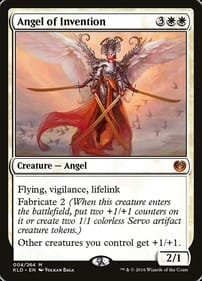Colin Kaepernick Not Making Friends with AI Comics Venture
By Dan BrownYou may know Colin Kaepernick as the NFL quarterback who struck a blow for civil rights.But now the former football player wants to revolutionize the comic industry. And that’s not a good thing.Sports fans are familiar with Kaepernick because eight years ago he took a knee during the American national anthem at a San Francisco 49ers game to protest police brutality and racial injustice. More kneeling ensued, as well as much controversy.He came to the attention of comics fans this summer when he announced the founding of his artificial-intelligence company, Lumi, which aims to “free creators and democratize storytelling.”Sounds great, right? The unsaid part is that he wants to replace work done by comic artists and writers with images and words generated by an AI. This has not endeared him to the comics community.It probably didn’t help his cause when he made his intentions known in a press release that sounds like it was generated by a robot.With $4 million in funding behind it, Lumi is a “groundbreaking platform that empowers creators by providing them with the tools needed to independently create, publish and merchandise their stories both digitally and physically.”How will this be done? By putting the human creators who would have otherwise created these stories out of work.I haven’t done a survey of people in the field, but I’m not currently aware of any comic creators who were looking for this kind of shortcut. “By leveraging advanced AI tools, Lumi enhances the creative process, allowing creators to focus on bringing their stories to life, while the platform handles all of the logistics,” the statement adds. The company boasts this will make every creator into a Walt Disney. But whatever you think of Disney’s labour practices, he at least employed actual human animators.It seems Kaepernick has himself run up against “gatekeeping” in the comic industry.“Currently, a few large corporations dominate the narrative landscape, limiting the diversity of stories told. Lumi aims to open the funnel, enabling anyone to access storytelling superpowers, ultimately fostering a more inclusive and equitable world.”The reality, of course, is that the internet has made the barrier to entry ridiculously low. For better or worse, all you need to be a comic creator in 2024 is a computer and an idea. And anyone who has been paying attention to the graphic-novel market over the last dozen years also knows there are now graphic novels and comics for almost every taste. Besides, AI art and writing is just . . . weird.Granted, I haven’t seen the finished product of a comic produced with the help of Lumi. Who knows, it might be better at drawing than all the other AIs out there.But even if it’s the best AI art ever invented, it still can’t match the creativity of the human mind. You could argue that it’s the flaws, the human element, that make comics attractive to human readers in the first place. Someone like John Porcellino is not a master illustrator, but his simple images are the perfect vehicle for making the emotional points he wants to make. The results are comics that verge on the poetic.Nor am I against the use of technology in the making of comics. If it makes drawing or writing easier for a human, go for it, but the comic creators I love don’t give up those functions entirely to a machine.“Creators today face significant challenges, including exploitation and lack of independence,” the statement claims. “Lumi addresses these issues by providing an end-to-end solution for storytelling leading to more financial stability, creative control, and ownership of their work.”Yup, sounds like the comic biz to me!Oh, and at the risk of belabouring the point – there was and will only ever be one Walt Disney!Dan Brown has covered pop culture for more than 32 years as a journalist and also moderates L.A. Mood’s monthly graphic-novel group.







